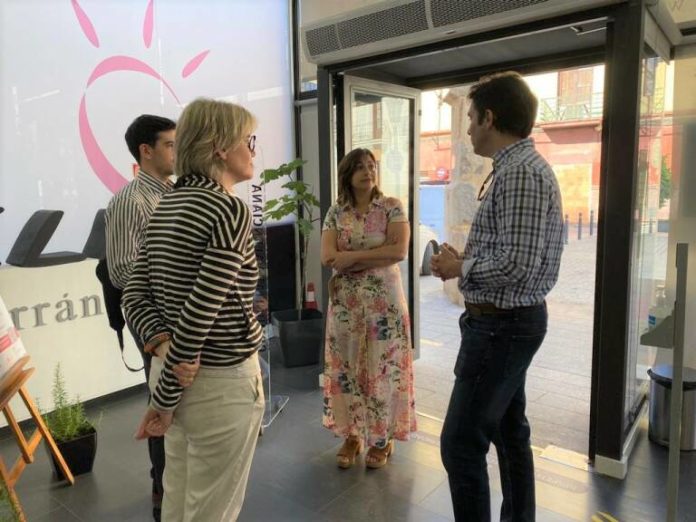The Department of Tourism in Orihuela will invest three million euro in a Tourism Sustainability Plan, Plan de Sostenibilidad Turística en Destino, or PSTD, financed through European Next Generation funds. The plan includes actions in the urban area and on the coast, and aims to create parking, improve signs and tourist information for visitors and deseasonalise demand, among the fifteen actions that it contemplates.
The details have been shared by the Councillor of Tourism, María García, who has presented this plan in the company of Pere Lloret, from SIEN Consulting, who has helped in its preparation. The Councillor has pointed out that it is a consensual document and that it has all the active part of the business and associative fabric of Orihuela channelling participation through the SICTED tourism recognition platform.
García stated that “it will be something beneficial for the city and for the people of Orihuela, since it brings with it the creation of jobs and companies, all of this, around tourism and to make a more sustainable city and adapted to the environment, which it encompasses the entire city and all the areas that are the responsibility of the City Council”. The plan is configured in four axes established by the regulations: green and sustainable transition, energy efficiency, digital transition and competitiveness.
Deseasonalisation is one of the lines of action contemplated in the PSTD and that will promote the development of tourist products complementary to sun and beach, such as heritage and nature. In the field of nature, the aim is to adapt the Pedrera Reservoir Nature Trail that connects with Murcia and, in the field of heritage, its enhancement and visibility will be improved through the use of new technologies with information panels and different urban elements, among many others.
This PSTD, in addition to improving the competitiveness of the sector, will also address problems that affect both visitors and residents. Among them is the mobility between the urban centre, Orihuela Costa and the districts and the traffic and parking problems that are generated continuously. In order to deal with this, “actions will be developed to promote sustainable mobility through the creation of a greater number of parking spaces and the provision of non-polluting means of transport to move around the entire municipal area in a sustainable way”, explains Garcia.
On the other hand, it is also contemplated to increase the quality of the tourist information service by improving urban signage, especially in Orihuela Costa (beaches, parking and access areas, indication of urbanisations) and the implementation of digital tools that put information about resources and services available to any user.
All this will be accompanied by actions aligned with the Model of Smart Tourist Destinations of the Valencian Community, which, says María García, “will help transform the tourism management model and make better decisions based on the analysis of data from visitors who come to the city in order to provide them with a more specialised offer that is more in line with their current needs and services. In the end it is to differentiate ourselves on the one hand, but to provide a very specific and concrete service so that they find what they need”.
For his part, Pere Lloret, from SIEN Consulting, the writing company of the PSTD, explained that “the plan has been designed seeking synergies with other projects and other initiatives of the City Council, such as the integrated sustainable urban development strategy that is already underway” . The investment of three million euro to which this plan opts is divided into three annuities: 2023, 2024 and 2025.
Tourism management includes budget items aimed at planning tourism management and managing it through staffing and the incorporation of technological tools that allow optimising the efficiency of all processes.





